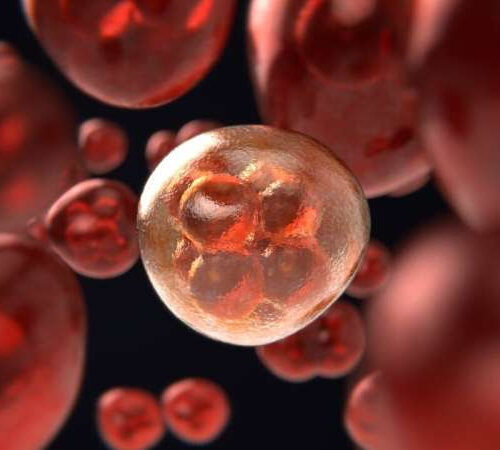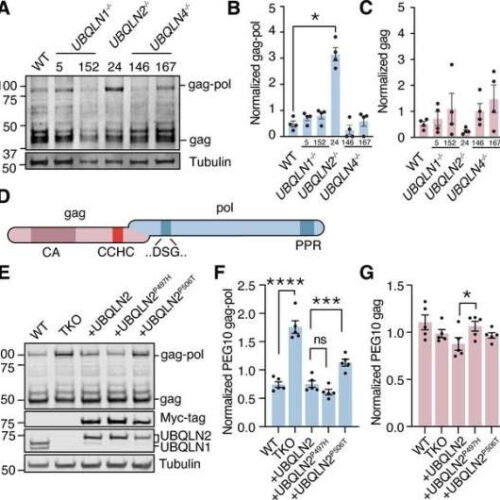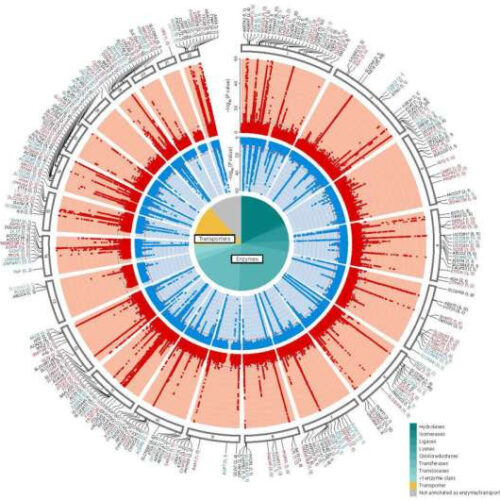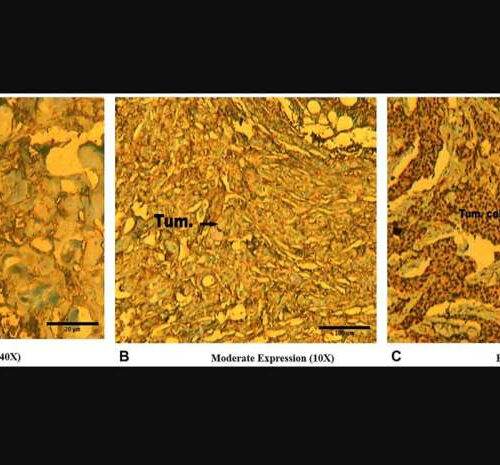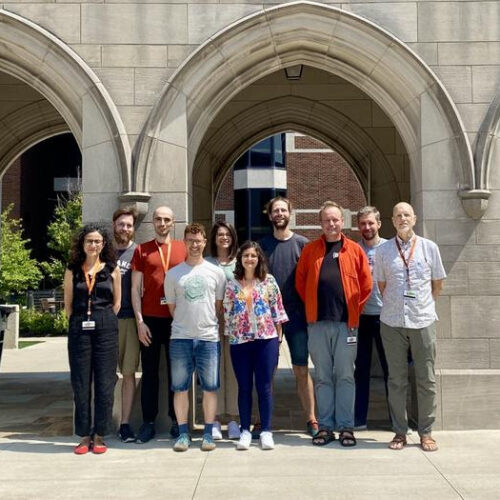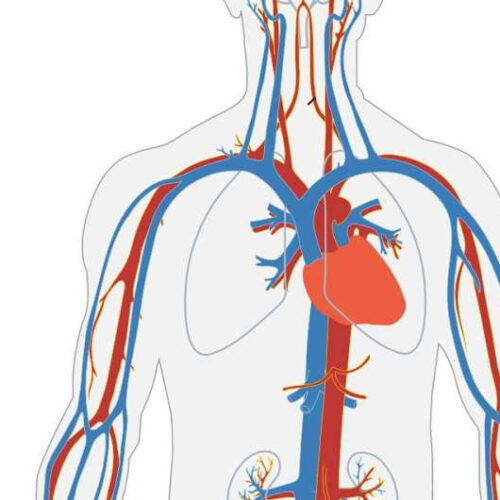by University of Connecticut Credit: Pixabay/CC0 Public Domain Prostate cancer is the most common non-skin cancer in men worldwide. According to international estimates about one in six men will get prostate cancer during their lifetime and worldwide, over 375,000 patients will die from it each year. Tumor resistance to current therapies plays an essential role in...
Category: <span>Genetics</span>
Remnants of ancient virus may fuel ALS, says new research
by Lisa Marshall, University of Colorado at Boulder Ubiquilin 2 (UBQLN2) regulates paternally expressed gene 10 (PEG10) gag-pol abundance. Credit: eLife (2023). DOI: 10.7554/eLife.79452 More than 5,000 people are diagnosed annually with ALS (amyotrophic lateral sclerosis), a fatal, neurodegenerative disease that attacks nerve cells in the brain and spinal cord, gradually robbing people of the ability to speak,...
UNIQUE GENETIC RISK FOR ALZHEIMER’S FOR ASHKENAZI JEWS
Alzheimer disease (AD), the most common neurodegenerative disorder in the world, affects individuals of all races and ethnicities; however, most genetic research for AD has been performed on individuals of European ancestry (EA) with a limited number of large-scale genetic studies in other populations. For many centuries, Ashkenazi Jews lived in communities in Eastern Europe and were...
Decoding the dark matter of our DNA: Study links genetic variants to blood pressure regulation
THE HOSPITAL FOR SICK CHILDREN Scientists at The Hospital for Sick Children (SickKids) are delving deep into the non-coding genome to unravel the complex genetics that underlie blood pressure regulation and hypertension (high blood pressure) – the leading cause of cardiovascular disease affecting 1.25 billion people worldwide. While the human genome comprises coding and non-coding...
Treatment found to reduce progression of rare blood cancer by 74%
Credit: Wikimedia Commons A treatment that involves genetically modifying the body’s own immune cells has been found to cut the risk of disease progression by 74 percent in people with a rare type of blood cancer, results showed Monday. Ciltacabtagene autoleucel—also known by its trade name Carvykti—was tested in a clinical trial involving 419 patients with multiple...
Researchers discover numerous undescribed metabolic processes
by University of Freiburg Using genome-wide analysis, the researchers identified 1,299 genetic alterations that impact on metabolites in blood plasma and urine. Shown here are the 282 gene locations where enzymes and transporter proteins that influence metabolism are located. Credit: Anna Köttgen/Universität Freiburg Researchers at the Faculty of Medicine at the University of Freiburg have gained significant new insights...
BORIS gene mutation and expression: Link to breast cancer progression
by Impact Journals LLC Figure 4: Representative immunohistochemical slides showing (A) Low protein expression (+) (scale bar 20 μm), (B) Moderate protein expression (++) (scale bar 100 μm), and (C) High protein expression (+++) (scale bar 100 μm) of BORIS protein in Indian female breast cancer cases. Credit: Oncotarget (2023). DOI: 10.18632/oncotarget.28442 A new research paper titled “Association of...
Nature-inspired compounds chop up cancer gene’s RNA
Resarchers have found new possibilities for targeting cancer genes’ RNA with nature-inspired compounds. The cancer gene MYC drives the unrestrained growth of most human cancers. It has been called the “Mount Everest” of oncological research because of the difficulty of designing medications that can disable it, and the expectation that an effective MYC drug could help so...
UTHSC researchers’ work on human pangenome aids understanding of common chromosomal abnormality
UNIVERSITY OF TENNESSEE HEALTH SCIENCE CENTER IMAGE: UTHSC RESEARCHERS CONTRIBUTED TO THE LANDMARK HUMAN PANGENOME DRAFT REFERENCE, WHICH WAS PUBLISHED ALONGSIDE THEIR BIOLOGICAL DISCOVERY REGARDING A COMMON CHROMOSOMAL ABNORMALITY. CREDIT: COURTESY UTHSC Researchers from the University of Tennessee Health Science Center have made a foundational discovery about chromosome biology through their work on the first-ever human...
Researchers use ‘deep sequencing’ to identify previously undescribed genetic variants in vascular anomalies
by Children’s Hospital of Philadelphia Credit: Pixabay/CC0 Public Domain Researchers from Children’s Hospital of Philadelphia (CHOP) recently discovered that extremely thorough “deep sequencing” of the genome in tissue samples and cell-free DNA of patients with potentially life-threatening vascular anomalies captured several genetic variants related to disease that were not captured with conventional genetic sequencing methods. More than...

